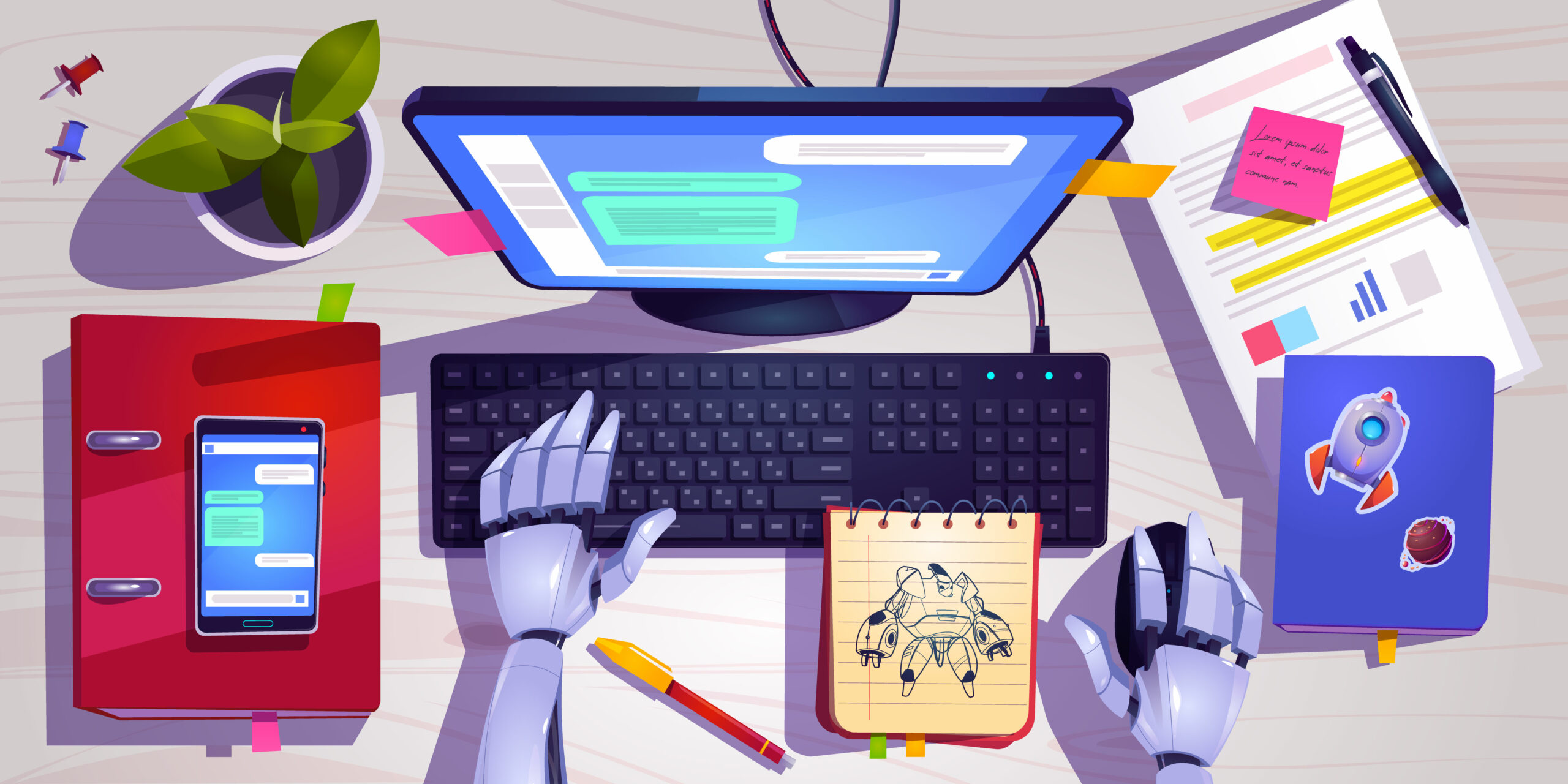
Tech, Legal Experts Tackle Key Leadership Issues Around AI Ethics
Artificial intelligence (AI) visionaries and practitioners from the media and entertainment sector, along with legal experts, provided a practical introduction to the key leadership issues on AI Ethics during the Nov. 3 Women in Technology Hollywood’s (WiTH) SoCal Women’s Leadership Summit, at Nya Studios in Los Angeles.
The conversation, which took place during the panel session “Responsible Leadership in the Age of AI,” touched on subjects that included the steps organizations should take to achieve maximum benefits from AI responsibly, what organizations need to consider when applying AI to avoid ethical pitfalls, how AI can align with or even enhance our diversity, equity and inclusion (DEI) goals, and the need to move past fear to create new opportunities in AI where everyone wins.
“What we’re really trying to do with this topic is bring together our DEI messages but also the thought about leadership,” moderator Nina Skorus-Neely, industry advisor at Microsoft and secretary of the WiTH Foundation, said to kick off the panel session.
She explained to attendees and those viewing remotely: “You as technology leaders need to be aware of what’s going on with the emergence of AI in our lives, in our solutions, in our organizations. And what we’re trying to do with this talk is really understand from people who are going through this journey and have successfully at least embarked on the journey, what are the issues as leaders we need to be talking about?”
She noted that, as this topic was being put together, “one of the things that really struck me about AI and the dialogue around AI today is that, for me personally, for the first time since the introduction of the threshing machine in England in the 1800s, we have a technology that is fundamentally impacting not only our capabilities as organizations to be productive, but having fundamental impacts on us as humans.”
Therefore, she said: “I think it’s important for us to talk about that humanistic aspect of AI and how we implement and realize this in our organizations.”
She then introduced the panelists, including Hema Chamraj, director of AI advocacy and thought leadership at Advanced Micro Devices (AMD), who said: “I see that there’s so much work that’s being done. But AI is one of those technologies that we, all of us, have to be involved in some way or the other because we have to shape it.”
That, explained Chamraj, the only panelist there in person, is “because we talk about tech and all the issues that are there, but this is going to be much more amplified so, in that sense, it requires all of us to be thinking.”
She added: “I’m glad that, even though I’m not part of the Hollywood entertainment side, I want to bring in some perspective so you can see why you all need to have a role to play.”
After all, said Chamraj, it is “going to affect every person, every product, every business and so on, in good and bad ways so, I’m very happy to be here, to be talking about it; we’ve talked about the technology part of it, but the human element is the most important one.”

The Legal Side
On the legal front, “AI is just a crazy hard [thing] to regulate,” according to Yesha Yadav, associate dean, Robert Belton, and director of diversity, equity, and community, Milton R. Underwood chair professor of law faculty co-director, LL.M. program, Vanderbilt University Law School.
Yadav agreed with Chamraj that AI is “going to affect every inch of our lives,” saying: “AI is going to affect so many ways in which the societal processes that we’re so used to, whether it be how we access finance, how we get resources, housing, how we’re marketing, all of these different aspects of our lives and those that we would rather keep to ourselves in privacy, are going to be affected so deeply.”
But Yadav predicted: “There are chances of getting a good regulatory framework in place for this, both at the state level and at the federal level.” She conceded, however, that the technology still “looks pretty aspirational and far away at present, and so there’s a lot for us to do as people, as [an] industry within this space, to be able to create those structures that can keep us kind of safe, protected, as well as obviously allow for massive innovation and flourishing in this space.”
Shelley McKinley, a VP at Microsoft and chief legal officer for its GitHub subsidiary, which Microsoft acquired in 2018, said her company was the first to ship an AI-powered developer tool that’s come out of the Microsoft OpenAI relationship.
“In AI terms, or in [co-pilot] terms, we are like the granddaddy, having shipped our product to Technical Preview in July of 2021,”McKinley said, noting that was
“well before our last November AI explosion, I would like to call it, when people came out with lots of different announcements about AI.”
She also “oversaw corporate responsibility at Microsoft and one of those things that I did was to help establish what’s called today the Office of Responsible AI,” she said.
Taking a walk down Memory Lane, she recalled there were a small number of principles back then that “all kind of boiled down to the same sort of concepts of, reliability, safety, security, fairness, inclusiveness, transparency, accountability –and those kinds of things.”
But she said, after that, there was an effort to “get these principles and distill them down into practice, and that takes a lot more than just publishing a set of principles.”
She added that “one of the key things that Microsoft has done since then is develop what’s called the Responsible AI Standard…. It’s a standard that really encompasses all of those principles but, principle by principle, talks about how you go about implementing that principle from the development life cycle all the way through deployment and then certainly in the post deployment area where you’re going to be monitoring and looking for how things are going.”
The annual SoCal Women’s Leadership Summit was presented by Qvest with sponsorship by Softtek, and took place at Nya Studios, located in the heart of Hollywood.
The full-day event, themed “Us, Our Org, Our Community,” offered a dynamic lineup of presentations and discussions.
WiTH, founded in 2014, plays a pivotal role in advancing women in entertainment technology. The WiTH Steering Committee, responsible for selecting Leadership Awards winners, comprises representatives from prominent organizations such as Amazon Studios, Microsoft, Lionsgate, NBCUniversal, Paramount, Sony Pictures Entertainment, and The Walt Disney Company.
